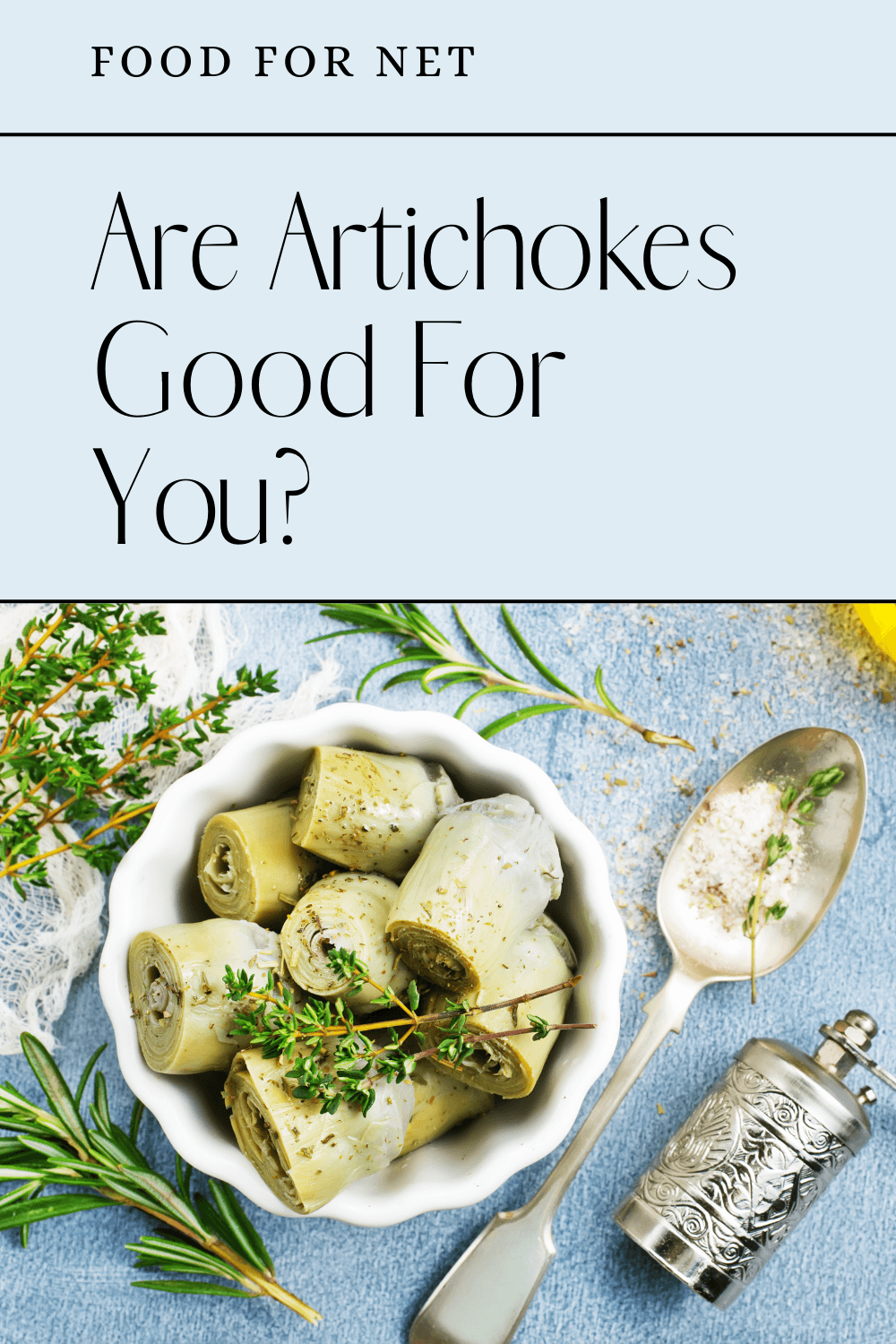
Artichokes are strange. There’s no denying that. What we’re actually eating is a collection of thistle plant flower buds, which are harvested before the flowers begin to bloom. Strange as that idea may seem though, artichokes have been popular for centuries and are often thought to have medicinal properties. So are artichokes good for you, or is it all a myth?
The potential health benefits are so significant that you can now find artichoke extract, which offers a more concentrated source of artichoke compounds. While you could turn to the extract, many people prefer artichokes themselves, partly for the way that they taste and all the dishes you can make with them.
So, we must ask, are artichokes good for you? To answer that, we need to take a close look at both the benefits and the risks of artichokes.
Are Artichokes Good For You?
- An Introduction To Artichokes
- Artichoke Nutrition
- Artichoke Benefits
- How Artichokes Can Be Harmful
- What Do Artichokes Taste Like?
- How Do You Cook Artichokes?
- Can You Eat Artichokes Raw?
- Is Artichoke Extract More Powerful?
- What About The Jerusalem Artichoke?
- Final Thoughts
An Introduction To Artichokes
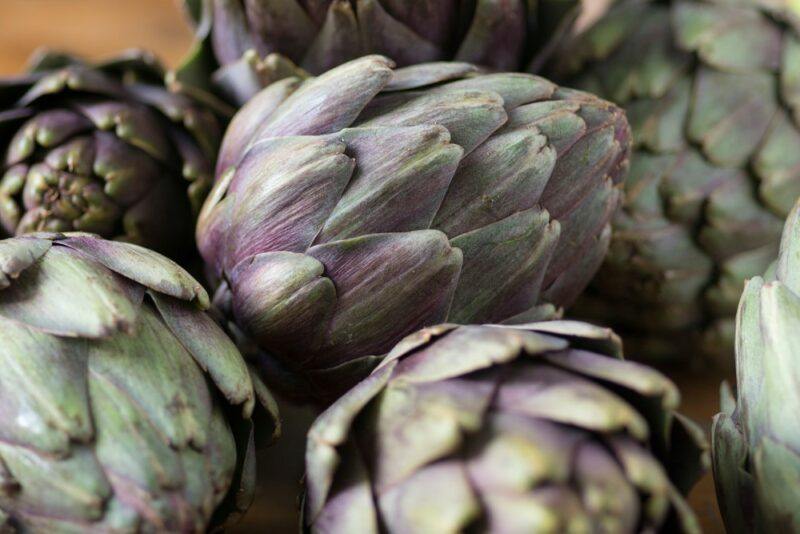
Artichokes need more introduction than other foods as, honestly, they’re a little confusing. The artichoke itself consists of layers of petals, surrounding fuzzy layer of hairs called the choke, and the heart of the artichoke.
The choke part isn’t edible (at least in a mature artichoke), so you’ll need to scoop that out. In fact, this part of the artichoke is well named, as it acts as a choking hazard.
As for the leaves, it is the soft part at the base of each outer leaf that is edible. Many people do so by pulling at the petal through clenched teeth, which gives you access to the tender edible part of the leaf.
Artichoke hearts, on the other hand, are tender and can easily be eaten. They’re sometimes sold on their own and you can even find cans of artichoke hearts.
If you are using the entire thing, then artichokes take a bit of work. Honestly though, they’re worth it. As you’ll see, artichokes really do offer a broad array of benefits. They’re also popular for their flavor.
The fact that they take time to eat isn’t a bad thing anyway. It’s often helpful to slow down and be more mindful with our food anyway. Foods like artichokes make that process easy.
Artichoke Nutrition
The benefits of food are often linked to the nutritional profile, so let’s start our conversation there. For a boiled medium artichoke, the nutritional breakdown looks like this:
- Calories: 60
- Carbs: 14.3 grams
- Fiber: 6.8 grams
- Protein: 3.5 grams
- Fat: 0.4 grams
- Folate: 27% of your daily intake
- Vitamin K: 22% of your daily intake
- Vitamin C: 15% of your daily intake
- Magnesium: 13% of your daily intake
- Potassium: 10% of your daily intake
There are other nutrients present too, with vitamin B3, vitamin B6, phosphorous, and riboflavin being the standouts. The nutrients are all important, as these are what keep your body functioning as it should. If your nutrient intake is too low, then you start to see many problems.
Artichoke Benefits
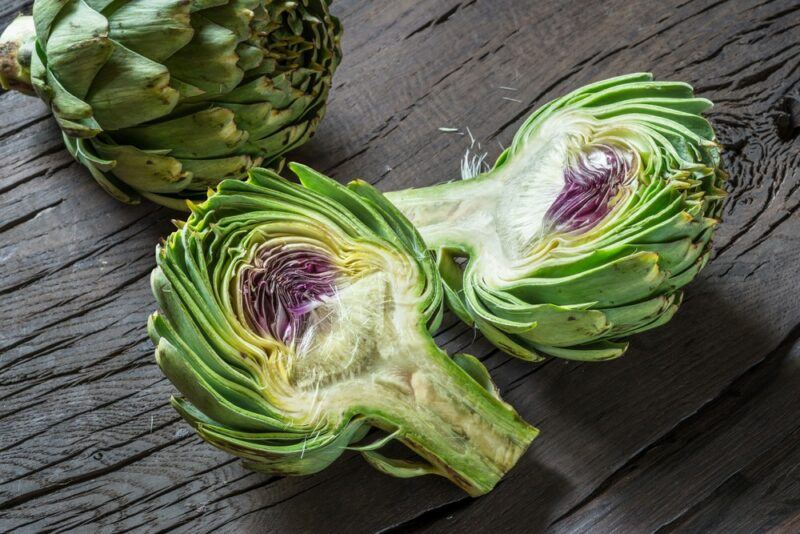
An Excellent Source Of Fiber
Fiber is never the most exciting topic. Yet, most of us aren’t getting enough of it in our diets. These days, it’s far too easy to rely on processed foods and simply not get all the fruits and vegetables that we need.
Artichokes shine here, as a medium one provides you with close to 7 grams of fiber. Most other vegetables don’t get anywhere near this level.
Getting enough fiber helps in more ways than we can count. The macronutrient is essential for good digestion. It also helps with your blood sugar and blood cholesterol levels, meaning it can decrease your risk of type 2 diabetes and heart disease,
A Potent Source Of Antioxidants
Most antioxidant rich fruits and vegetables are richly colored. Artichokes look much less impressive, yet their antioxidant activity is higher than most other vegetables.
Remember too that we’re talking about a low calorie vegetable, one that’s rich in nutrients and fiber. What could be a better choice for boosting your antioxidant intake?
Antioxidants matter because they may improve your health in numerous ways. Most of these benefits link back to one idea – that free radicals cause excessive oxidation throughout our body, which leads to damage to proteins, DNA, and cell membranes. This damage may contribute to the development of diseases, including cancer and heart disease.
Modern diets and lifestyles mean that free radicals are a bigger problem now than ever before. One way to protect ourselves is to increase our intake of antioxidants. Artichokes are a good way to do that.
Artichokes aren’t just high in antioxidants either. They also contain some particularly interesting plant-based compounds, including cymaroside, chlorogenic acid, and luteolin. These can all help to improve our health and reduce disease risk still further.
Can Promote Heart Health
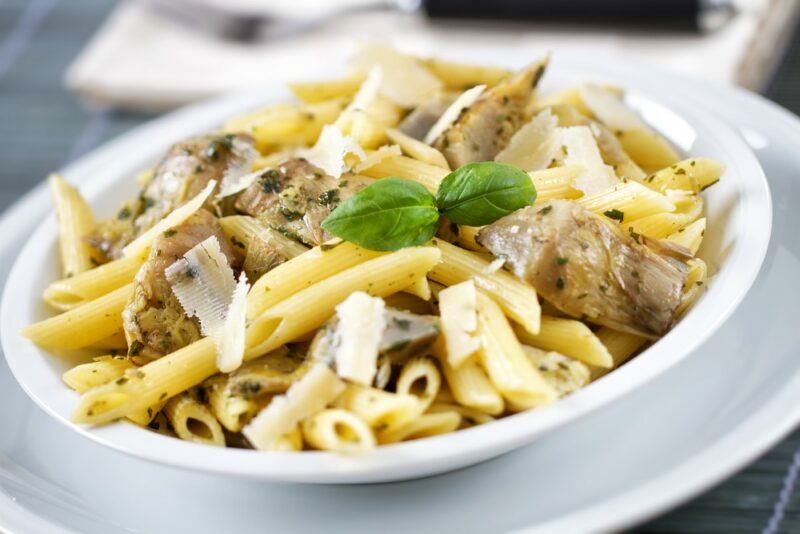
The compounds in artichokes may help to decrease your cholesterol levels and blood pressure, effects that could both help to lower your risk of heart disease as well.
Some of these benefits have been linked to artichoke leaf extract, which contains concentrated amounts of some artichoke compounds. Because artichokes contain smaller amounts of some of these compounds, they might have different effects.
Still, artichokes are a decent source of fiber (which isn’t true for the extract). Fiber is important for your heart health as well and can help with your cholesterol. So, in the end, fresh artichokes and artichoke extract are both powerful, just in different ways.
Helps With Blood Sugar Levels
Artichokes are relevant for your blood sugar levels as well. This effect is partly linked to the fiber in the vegetable, but that’s not all.
Some of the plant-based compounds in artichoke might be important here too, as artichokes seem to be particularly powerful for blood sugar control (more so than the fiber would suggest).
How Artichokes Can Be Harmful
While artichokes have many benefits, no food is entirely without issue.
May Cause Side Effects
Artichokes can sometimes cause side effects, including gas, diarrhea, and stomach cramps. These effects are often related to the fiber, as significantly changing your fiber intake can lead to significant side effects.
That’s not all though.
Artichokes are also high in FODMAPs, which are a collection of fermentable carbs that can cause gas and some discomfort. The effects of FODMAPs vary widely. Some people can digest the carbs without any problems at all, while others need to stick to a low FODMAP diet.
You might need to experiment with your own eating to find out whether you’re sensitive to the FODMAPs in artichokes or not.
Interestingly, small quantities of canned artichoke hearts appear to be low in FODMAPs, partly because some of the FODMAPs leach into the liquid surrounding the artichoke hearts.
Some People Are Allergic
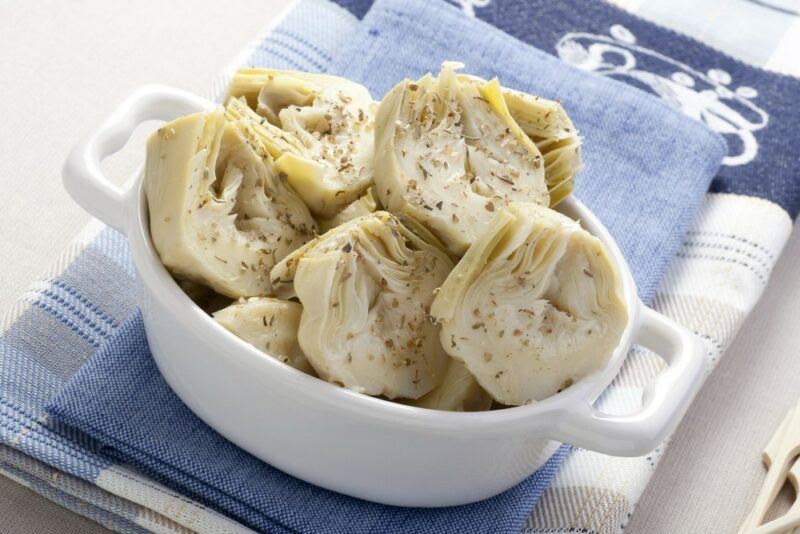
Allergic reactions to artichokes aren’t incredibly common, but they can still happen. Be particularly cautious if you’re allergic to plants like daisies and marigolds, as the similarities increase the chance that you’ll be allergic to artichokes as well.
Artichoke Dishes Aren’t Always Healthy
Artichokes themselves are nutritious and are low in calories, but this isn’t always true for dishes made using artichokes.
Take spinach artichoke dish as an example. This classic starter sounds like it should be healthy – and often isn’t at all. Part of the problem is that the dish heavily relies on ingredients like cheese, cream cheese, and sour cream, which quickly ramp up the calories and the saturated fat content.
You’ll also find deep fried artichokes or artichoke dishes that rely on heavy cream or tons of cheese. Not surprisingly, these versions don’t tend to be good for you at all.
You could still have dishes like this every so often as a treat, if they fit into your diet. It’s simply important to recognize that while artichokes themselves are healthy, some dishes that contain artichokes certainly won’t be.
What Do Artichokes Taste Like?
People describe the flavor of artichokes in different ways. Some talk about artichokes as being mild, with a slight nuttiness. Others say that there is a distinct earthiness that works well in many meals.
There is some bitterness present too, but not as much as you might expect (unless you’re eating artichokes raw, in which case the bitterness becomes much more pronounced). In fact, artichokes are also known for their unexpected sweetness.
For the most part though, artichokes will probably taste familiar, even if you’ve never had them before. This isn’t a bad thing though. After all, the vegetable looks pretty strange. The familiar flavor makes it more accessible.
How Do You Cook Artichokes?
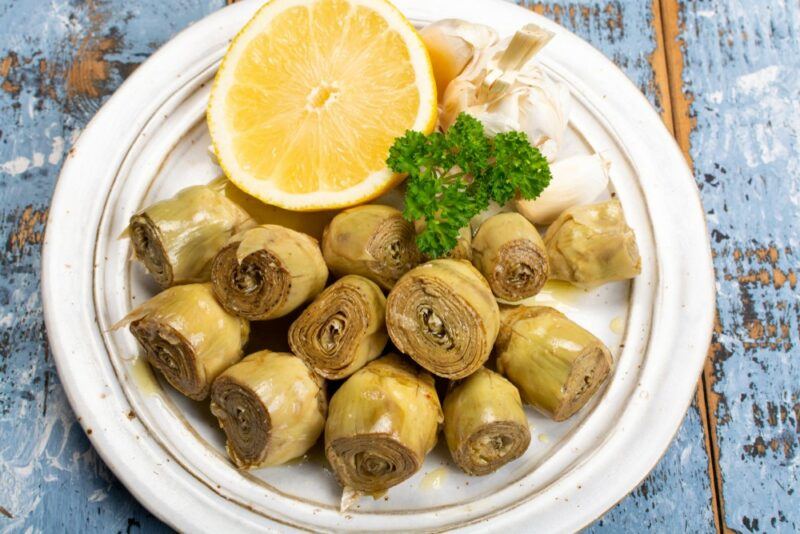
Artichokes may seem complicated at first glance. Thankfully, they’re pretty easy to use once you’ve experimented with them a little.
Popular approaches include steaming, boiling, braising, and grilling artichokes. You can even stuff them and bake them if you want. Or, to make things insanely simple, you might just buy canned artichoke hearts.
Steaming artichokes is probably the easiest approach for beginners, as you’re working with the whole artichoke and there’s no risk of waterlogging it. The site Simply Recipes has a fantastic guide for beginners and you’ll be confident with your artichokes in no time.
Can You Eat Artichokes Raw?
While artichokes tend to be cooked, you can eat them raw as well. This is true for artichoke leaves and artichoke hearts, so you can eat as much or as little of the artichoke as you wish.
The freshness of the artichoke makes a huge difference here, even more than with cooked artichokes. Because of this, it’s best to focus on home grown artichokes or ones from a local farmer’s market.
You will need to discard the outer leaves of the artichoke, which are too tough to eat. After this, you can eat the artichoke just like you would when it has been cooked.
Is Artichoke Extract More Powerful?
Artichoke extract has become a popular home remedy for conditions like high blood pressure, arthritis, kidney problems, and liver problems. The extract is even promoted as a hangover treatment.
However, as with most such supplements, evidence is limited. There is some evidence for using the extract to treat high cholesterol levels and indigestion, although more proof is needed here too.
As such, we don’t really know whether artichoke extract has notable health effects or not.
The extract does appear to be safe for most people and side effects are rare. That said, anyone allergic to artichokes themselves will be allergic to the extract as well.
Artichoke extract does have some potential, as it is a more concentrated source of artichoke compounds than artichokes themselves. Still, there’s a tradeoff going on, as the extract won’t give you all the nutrients that you find in artichokes. You’re missing out on the fiber as well.
If you are going to use artichoke extract, make sure that you find a reliable supplier, preferably one that has their products tested by a third party. The supplement industry is always a little tricky, as you can’t be certain that the contents of the product match the ingredients label.
What About The Jerusalem Artichoke?
Despite the name, the Jerusalem artichoke isn’t an artichoke at all. It doesn’t come from Jerusalem either. The vegetable is a tuber instead, one that comes from a type of sunflower.
As such, Jerusalem artichokes have a completely different balance of risks and benefits than regular artichokes. We won’t delve into them much in this post, but do provide various important nutrients, along with some antioxidants.
Because they’re a tuber, Jerusalem artichokes are also somewhat similar to potatoes, sweet potatoes, and parsnips, and can be prepared in roughly the same ways.
Final Thoughts
Artichokes might look strange, but they’re actually a nutritious vegetable that provides plenty of benefits. They’re surprisingly easy to get used to as well, especially as the flavor is mild.
The biggest issue with artichoke is the FODMAP content. However, high FODMAP foods aren’t a problem for most people. They’re only something to think about if you have a sensitive digestive system or have irritable bowel syndrome. Even then, you might find that you can eat artichokes without a problem.
Frequently Asked Questions
Are Artichokes Keto?
Artichokes are relatively low in carbs, with an entire medium globe artichoke containing roughly 7 net grams of carbs. This carb content is decent for keto, although you’ll still need to be a little cautious.
Do Artichokes Cause Gas?
Unfortunately, artichokes are notorious for their ability to cause gas, largely due to compounds called fructans. Even the fiber in artichokes can be a problem, as too much fiber also leads to gas.
However, the effect does vary. Some people don’t experience much gas at all from artichokes, while for others, the effect is extreme.
Is An Artichoke A Fruit Or A Vegetable?
Artichokes are sometimes thought of as fruits because the plants produce flowers. However, this is a moot point, as artichokes are still culinarily classified as a vegetable (botanically, artichokes are actually classified as flowers rather than fruits anyway).
How Many Calories In An Artichoke?
Roughly speaking, a cooked medium artichoke contains 64 calories, making them a low calorie dish. However, what you serve with the artichokes makes a difference, as additions like butter or cheese will increase the calorie content considerably.
What Are The Benefits Of Artichoke Tea?
Artichoke tea is made by boiling artichoke leaves in hot water, much like when you prepare herbal tea. Doing so doesn’t give you all the nutrients found in a full artichoke, but you do get some nutrients and antioxidants. As a result, the tea may help to reduce inflammation, stress, and anxiety, while potentially boosting your immune system as well.

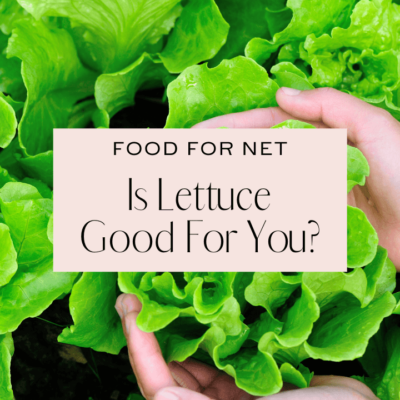

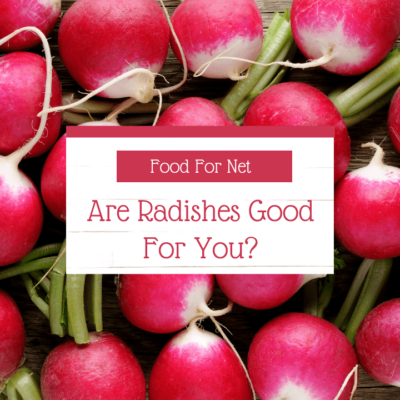




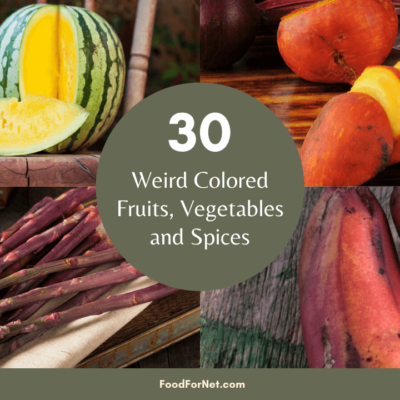
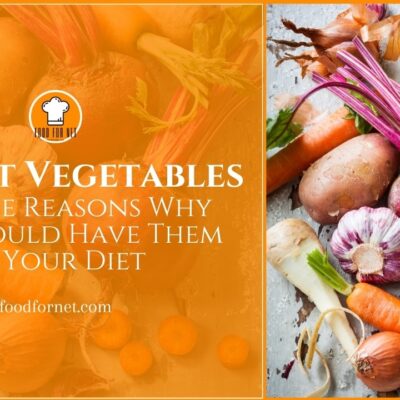

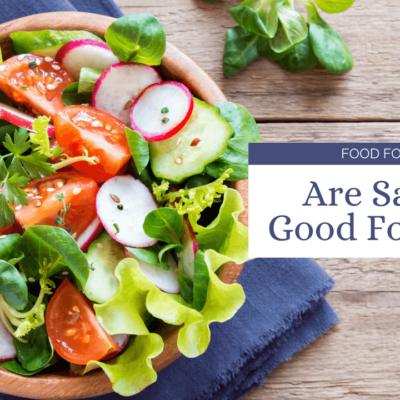
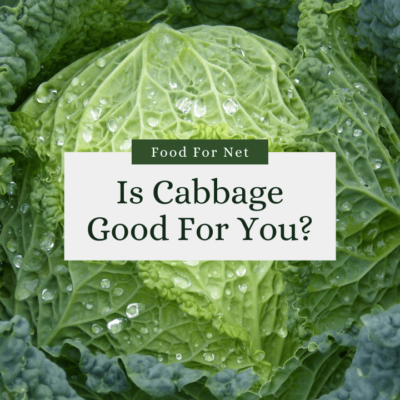


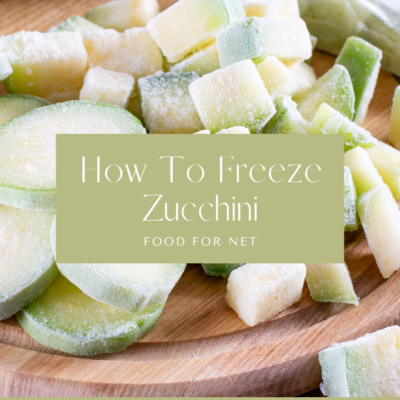
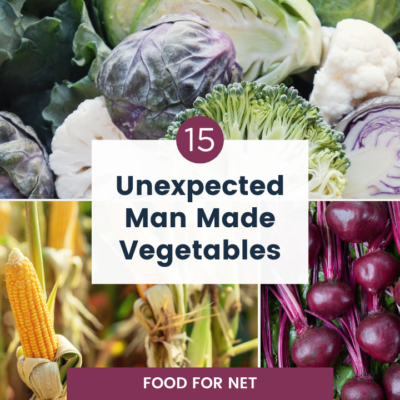
 15 Best Foods For Men, Plus Three Tips For Boosting Men’s Health Immediately
15 Best Foods For Men, Plus Three Tips For Boosting Men’s Health Immediately
Leave a Reply